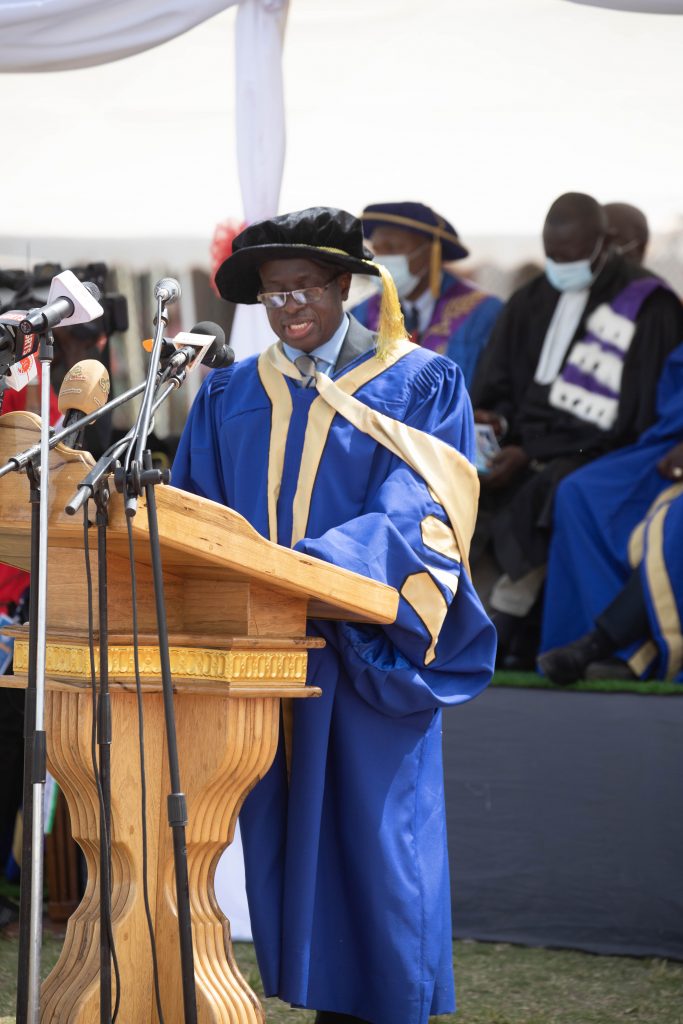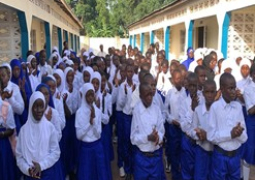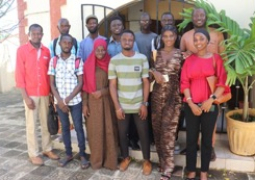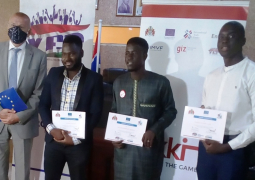
Professor Robinson also noted that in 2024, the university offered more than 50 undergraduate and 37 postgraduate programmes to over 7,700 students. He added that this was supported by more than 250 full-time academic staff, 185 part-time and adjunct lecturers, and 260 administrative staff.
The UTC VC added that the School of Arts and Sciences led undergraduate offerings with 12 programmes, followed by the School of Education (11), School of Business and Public Administration (10), and the School of Medicine and Allied Health Sciences (7).
VC Robinson also revealed that the undergraduate enrolment for January 2024 saw: 1,388 applications with 883 admissions, reflecting a rise compared to 2023. Similarly, in September 2024, 1,743 applications were received, leading to 1,075 admissions, again an increase from the previous year.
“The opening of the Faraba Campus significantly boosted application and admission rates, indicating a strong Faraba Banta effect. Gender balance improved, with male to female ratios narrowing from 58:42 in 2023 to 53:47 in 2024, VC stated.
He further explained that for the postgraduate admissions, 446 new students enrolled in 2024 compared to 300 in 2023. “The university recognised the need to strengthen postgraduate programmes, particularly in agriculture, health, IT, tourism, and culture.”
To address national needs, the Vice Chancellor said the university revamped its School of Agriculture and Environmental Sciences, adding new programmes like Agricultural Economics, Animal Science, Food Technology, and Climate Change. In health sciences, new programmes in Medical Laboratory Science and Pharmacy were introduced, with support from the Ministry of Health and the World Bank. A postgraduate certificate in Health Research Ethics, in partnership with the University of Maryland, was also launched.
In digital transformation, he added, a new master’s in Management Information Systems was initiated in partnership with the University of Oslo, alongside short courses in AI, Data Science, and Cybersecurity. In tourism, the university is redesigning its programmes to foster responsible tourism, ecotourism, and sustainable industry growth.
On research and consultancy, he said a significant progress was made. “External funding of about D45 million was secured in 2024. Major projects included environmental assessments for new hospitals, early learning outcomes research, respiratory virus screening, and studies on TRRC public perceptions.”
“The University also participated in two major knowledge exchange events: the Banjul International Surgical Scientific Conference and the U6+ Consortium Conference in Cape Town, with UTG set to host the 9th edition in 2025,” he disclosed.
The UTG Vice Chancellor also noted that community engagement remained strong. He added staff supported public institutions and collaborated with international partners, such as Barcelona’s Great Institute, on research projects like the SALBIA project assessing salination impacts on River Gambia. “Staff published over 90 research articles addressing crucial issues from air pollution and food nutrition to water quality and climate change impacts.”
The Vice Chancellor highlighted progress in six strategic areas (6Ss) critical to UTG’s “Quality-First Agenda”: student experience, staff development, space, performance management systems, sustainable financing, and stakeholder engagement.
Regarding student experience, he said, over 35 students participated in international exchanges, and more than 150 secured paid placements. UTG law students excelled at moot competitions, and medical students gained practical exposure at international conferences.
In staff development, he added, UTG supported long-term training: 17 staff for PhDs, 15 for master’s degrees, and 4 for postdoctoral training. “The Carnegie BANGA-4 project supported six UTG staff for PhD training in Ghana. Short-term professional exchanges were expanded, and over 60 ICT certification slots were secured from the Commonwealth.”
Alongside the progresses, VC said on infrastructure, Faraba Phase 2 (housing the School of Agriculture, Faculty of Law, and Chancery) is set for completion by the end of 2025, while Phase 3 focuses on a modern School of Medicine and Allied Health Sciences.
He indicated that the university introduced a new Annual Performance Evaluation Report (APER) system for academic staff, aligning job specifications with key university pillars to foster transparent performance management.
As part of its digital transformation, UTG has embarked on initiatives to transition towards a fully paperless system, digitizing administrative processes and online approvals to enhance sustainability and operational efficiency.
Vice Chancellor professor Herbert Robinson said the university’s progress reflects its commitment to delivering transformative education, impactful research, and responsive community service, shaping the nation’s future through knowledge and innovation.





